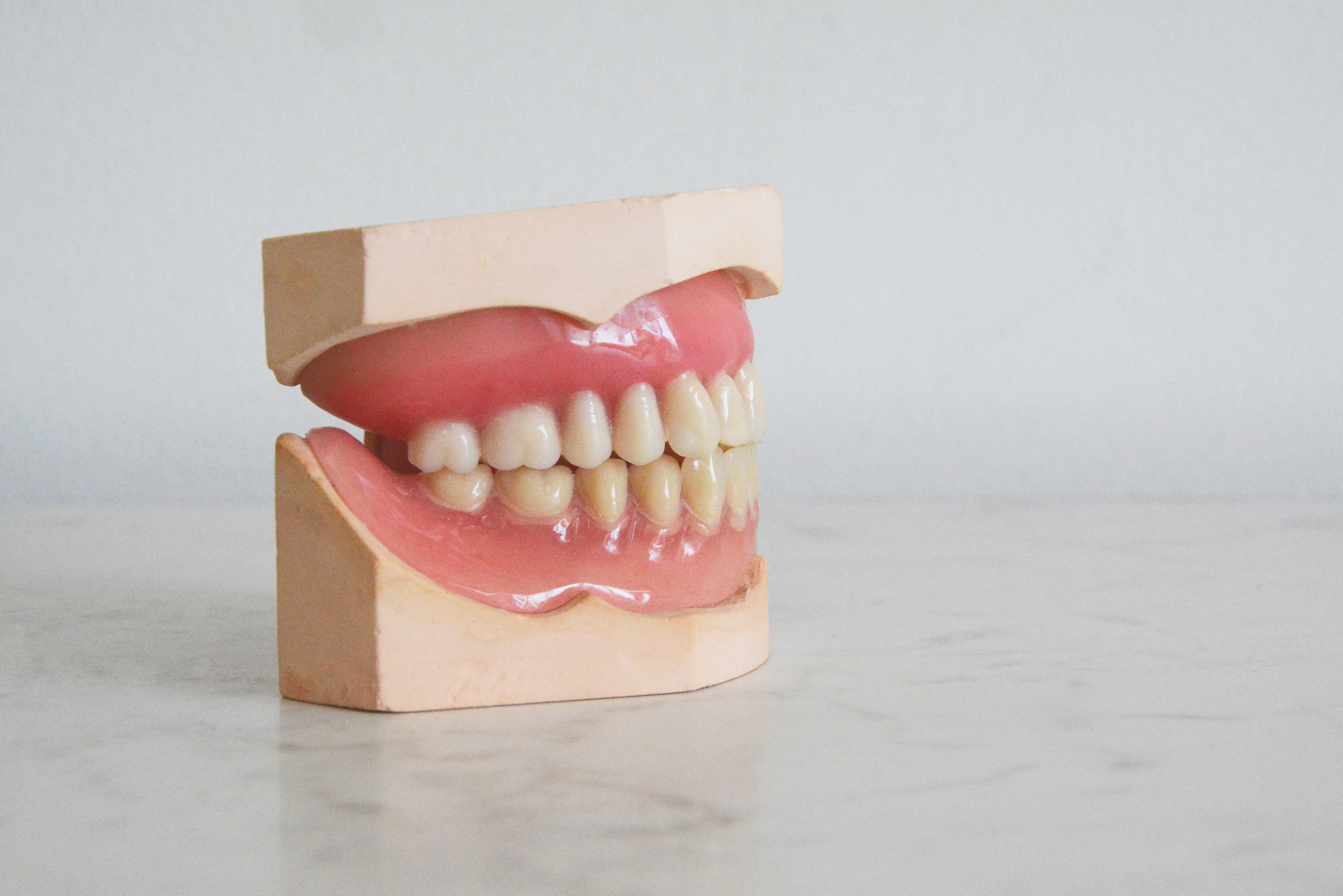Seven Common Stress-related Nutrient Deficiency Signs
Sep 07, 2023
Supporting our bodies through challenging times
We all have those bodily signs that seem to pop up when life’s challenges build to a crescendo. Although these can seem pretty benign, it’s good to watch the signals and be able to respond to them with dietary solutions. Periods of stress use up most nutrients more quickly as our whole systems – eg. energy, brain responses, hormones, immunity – are all working at a higher and faster rate. So some symptoms associated with different vitamin or mineral deficiencies can show up and alert us to possible deeper long-term effects of chronic stress. The food sources shown can help replace used nutrients, but also reducing sugar and stress means our diets are naturally more nutrient dense and we spare our resources.

B vitamins and Minerals
Firstly, let’s look at the B vitamins and minerals that we use up quickly in the stress response to make the energy, hormones, enzymes and neurotransmitters we need for that levels of reaction. Even if we don't use up those in a big physical, survival response, we still respond in that same primal way - ready for danger and depleting energy and healing resources. Here are some common signs I see with clients:
Cracks at the side of the mouth
Why? Need for vitamin B6
Those unpleasant little sore fissures we can get at the corners of the lips are a sure sign that B vitamin status is low and particularly B6. B vitamins are important for the health of the nervous system and are needed to get energy from the carbohydrates, fats and proteins that we eat, so we use them up during the energy-rich stress response. Important for the nervous system, B6 is involved in the production of the neurotransmitters (brain chemicals) serotonin and dopamine that regulate mood and motivation and also melatonin, that governs sleep, so we also see these suffer when stress is prolonged. We have a higher need for B6 with during contraceptive/HRT and antidepressant medication use.
Food sources: carrots, chicken, eggs, fish, meat, peas, spinach, sunflower seeds, walnuts, avocados, bananas, beans, broccoli, brown rice, whole grains, cabbage, corn and potatoes

Jaw grinding or bruxism
Why? Need for vitamin B5
Another B vitamin, B5 is often referred to as the “anti-stress” vitamin, as it helps with the production of adrenal hormones, cholesterol and immune antibodies, all of which have a higher turnover during the stress response. Note here that this cholesterol production is not all ‘bad’, we need it to produce new cells and the steroid hormones like cortisol and DHEA that are part of the stress response. Long-term stress often shows up as jaw clamping and teeth grinding, partly as tensing muscles around the face increases brain alertness, which the body senses it needs to deal with danger, but it is also associated with lowered levels of B5. This vitamin is also needed for production of the memory neurotransmitter acetylcholine, which also calms us down after stress has past. Lowered levels mean difficulty self-soothing after stress has passed and the memory issues we see with chronic stress. Taking B vitamins together in supplement form (eg. in a B complex or a multivitamin) is advised as they all work together for energy production and nervous system health.
Food sources: beef, eggs, fresh vegetables, kidney, legumes, liver, mushrooms, nuts, saltwater fish, whole rye flour
White spots on nails
Why? Need for zinc
Although white spots on the nails are often assumed to be a calcium deficiency, it is actually another mineral loss they are indicating. The mineral zinc is very important for many of the enzyme systems in the body, for immunity and for the production of hormones, including insulin and sex hormones. It is the most abundantly used mineral in the body and allows energy production, but also all healing and replication (like fertility and sexual health) rely on good levels. It is easily used up by stress and we can often chart a stressful period from where white spots appear grown from the nail bed. Zinc in plant foods is less bioavailable that in animal foods because it binds to phytate (a fibre) that makes it difficult to absorb, so vegetarians may want to consider a supplement of about 15-20mg a day.
Food sources: fish, meat, sunflower seeds, pumpkin seeds, pine nuts, nuts, oysters and other shellfish, crab, rye flour, cheddar cheese
Alternating constipation and diarrhoea
Why? Need for magnesium
Magnesium is an essential mineral with about 70% in the bones and the remaining 30% in the soft tissues and body fluids. We use up massive amounts in the stress response and when we eat sugar. Our ability to calm muscles and brain after stress rely on this ‘calming mineral’ and you can see a vicious cycle can be set up when stress depletes it and our coping capacity is diminished. Low levels are associated with classic stress-related symptoms like anxiety, irritability, insomnia, depression and muscle pains. As the muscles of the digestive tract also rely on magnesium for calming and we feel stress keenly in the enteric nervous system in the gut, low levels often manifest there as difficulty regulated digestive muscle function and we can tend to constipation (seizure) or diarrhoea (spasm). Often these can alternate as the body struggles to find ‘normal’. Plenty of food sources and considering a supplement of 300-500mg magnesium citrate a day may help.
Food sources: buckwheat, nuts, soybeans, dark green vegetables, carrots, peas, sweet potato, sunflower and sesame seeds, lentils, avocado, cauliflower, fish, meat
Antioxidant Nutrients
We rely on antioxidants to quench free radicals, harmful and unstable molecules that damage body tissues and mutate DNA, so interfere with healing processes and contribute to disease. Free radicals are naturally produced in nature by heat and light (oxidation) and our bodies are used to dealing with continually, we produce lots of substances to combat. Trouble can arise when the free radical assault is higher that our antioxidant production, which relies on the direct antioxidants we take in from food. As modern sources like pollution, processed food, technology and air travel increase beyond the natural scope we evolved with, we need to ensure our intakes are good. Our naturally energy production also produces free radicals (like exhaust) and so if we run our engines higher – through stress and exercise – we also need more for protection.
Here are some common signs of low antioxidant nutrients I see with clients:

Bleeding gums
Why? Need for vitamin C
Vitamin C is an antioxidant and needed for at least 300 metabolic functions in the body. It aids in the production of anti-stress hormones, interferon (immune-system protein) and is needed for the production of collagen, from which we make all body tissues. This is why the classic vitamin C full-on deficiency, scurvy involves haemorrhaging – body tissues are unable to be replenished and break down. A very mild form of this can be seen in easy bruising and bleeding gums when brushing teeth, signs we are probably using up vitamin C very quickly in the stress response. Other signs of deficiency include susceptibility to infection/colds and difficulty recovering from illness. It is depleted by smoking, alcohol, analgesics, oral contraceptives, steroids and with antidepressant use.
Food sources: berries, citrus fruits, green vegetables, asparagus, avocados, broccoli, Brussels sprouts, cantaloupe, kale, mangos, onions, papayas, green peas, pineapple, radishes, spinach, strawberries, tomatoes and watercress
Hard pimples tops of arms and thighs
Why? Need for vitamin E
Another nutrient that can contribute to easy bruising, Vitamin E is a fat-soluble antioxidant that protects fatty body areas and is needed for fertility – the meaning of the Greek word tocopherol, its chemical name. Low levels of vitamin E and also omega oils can be seen as hardened, raised pimples at the tops of arms and legs that show abnormal skin growth called follicular keratosis, where too much of the skin protein keratin builds up. Vitamin E may also help with improved circulation, the promotion of normal blood clotting, scarring, blood pressure and enhanced sperm production.
Food sources: cold-pressed vegetable oils, dark green leafy vegetables, legumes, nuts, seeds, whole grains, brown rice, eggs, kelp, milk, oatmeal, organ meats, soybeans, sweet potatoes and watercress

Frequent throat and chest infections
Why? Need for vitamin A
Follicular keratosis is also associated with lowered vitamin A levels, as it is also a fat-soluble antioxidant and works with vitamin E. Vitamin A is essential for night vision (yes, carrots can help you see in the dark!) and the health and resiliency against infection of the outer skin and the mucous membranes that line the respiratory, gastrointestinal and urinary tracts. When you have trouble shifting colds and they commonly move to the chest and throat, increasing levels through plenty of greens and (if you eat) high-quality organic meat can help, in a stew helps deliver the nutrients efficiently and hydrate tissues at the same time. Sufficient supply of zinc is needed to mobilise and release stores of vitamin A.
Food sources: animal livers, fish liver oils and green, red, orange and yellow fruits and vegetables. Foods that contain significant amounts include apricots, asparagus, broccoli, cantaloupe, carrots, papayas, peaches, pumpkin, red peppers, spinach, watercress and yellow squash
Discover Whole Health with Charlotte here, featuring access to yoga classes, meditations, natural health webinars, supplement discounts and more...




